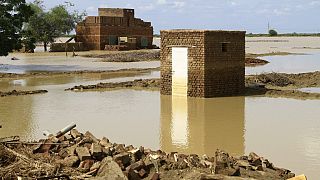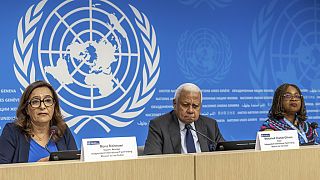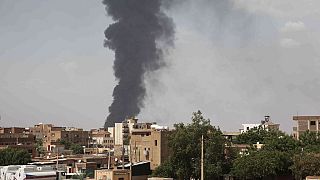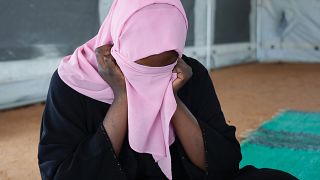Sudan
It's back-to-school time in Sudan, but nine-year-old Zahra Hussein is doing chores at home. Like millions of Sudanese children, she had to leave school because her parents could not pay her school fees.
In first grade, "I was the third in the class," the girl proudly tells AFP in her home in the village of Ed Moussa, in the eastern state of Kassala.
Two years later, she even managed to climb to first place despite the difficult learning conditions, with cracked walls, rickety tables, and often waterless toilets in her school.
But in the middle of third grade, she had to stop everything.
"My father didn't have enough money, so he took me out of school," she says in disappointment.
In Sudan, seven million children do not go to school, particularly in rural areas where nearly two-thirds of the 45 million inhabitants live, a "catastrophe for an entire generation", according to NGOs.
Already during the 30-year dictatorship of Omar al-Bashir, who will be removed from office in 2019 following a popular protest movement, families withdrew their children from school to cope with the economic crisis.
The political and economic stagnation that followed a coup a year ago, recurring ethnic conflicts, and prolonged school closures due to the Covid-19 pandemic have only worsened the situation in this country, one of the poorest in the world.
And every year, heavy rains destroy schools: this summer, 600 schools were damaged.
As a result, Sudan and its 12.4 million students are the second most vulnerable country in terms of schooling, according to the Risk Education Index.
"At the age of 10, seven out of ten children are unable to read and understand a simple sentence," laments Arshad Malik, director of the NGO Save the Children in Sudan.
A symbol of the distress that reaches even the teachers, the latter regularly demonstrate to demand better salaries or denounce a military power incapable of raising the country.
- No meal, no school -
Zahra knows that she will only return to school "if we find the money to pay for meals and school books".
In the village next to hers, Wad Charifaï, the school canteens closed down two years ago even though they often provided the only meal for the children, made of lentils, vegetables, and cookies.
Since these free meals disappeared, Othmane Aboubakr, a day laborer, has had to drop seven of his nine children from school.
Unable to pay for meals in addition to transportation and school supplies, he chose another option: to have the older children work.
"Now the children can help bring money home," he says.
Abdallah Ibrahim also sends several of his seven children to work. Some help out in his café, while others have found work in a bakery.
"Making the children work is not good but we have to, at least to pay for their meals every day," says Ohaj Souleïmane, a 43-year-old day laborer.
But not all children are equal when it comes to dropping out of school, points out Malik of Save the Children.
"A family is more likely to take their daughters out of school to marry them off or to involve them in domestic chores," he says.
He says four out of 10 girls have dropped out of school compared to three out of 10 boys.
Without action to get them back into school, "poverty and inequality are likely to increase, and with them families' vulnerability to climate change and natural disasters," Malik warns.











01:07
Pro-palestinian demonstrators protest in Rio de Janeiro as G20 summit unfolds
02:09
Russia vetoes UN resolution calling for immediate cease-fire in Sudan
01:28
Dozens of health workers on trial in Turkey accused of causing infant deaths
01:22
Cases of new mpox strain more than double among children in DR Congo and Burundi
01:00
Sudan war: UK, Sierra Leone to propose new resolution calling for 'end of hostilities'
Go to video
Anglican Church leader cornered in child abuse scandal